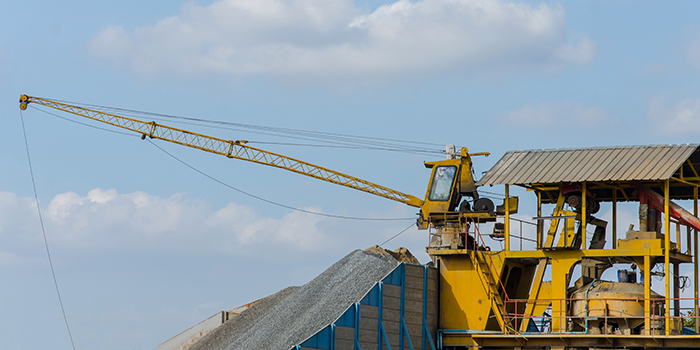New waste technology to reduce CO2 emissions
A new project from the Innovation Fund Denmark will develop a technology that will reduce CO2 emissions from cement factories and provide fuel with a low carbon footprint.
A new research collaboration will use pyrolysis technology to reduce the carbon footprint of several large industries and reduce the use of fossil fuels.
The technology is a further development of the patented waste treatment reactor from FLSmidth, which can already guarantee the use of a high proportion of waste as fuel in cement works and thus reduce dependence on fossil fuels. In the new CircFuel project, the technology is being further developed so that the waste used provides both energy for cement production and liquid fuel with a low CO2 footprint.
“The CircFuel project aims to use the cement process to convert organic waste into valuable hydrocarbons that can be used as substitute fuel in the transport sector. This can avoid waste disposal and incineration, reduce the extraction of fossil fuels for transportation and turn cement factories into an opportunity for the green transition. We are excited to be part of such a large consortium and hope to share results soon, ”says Thomas Petithuguenin, Head of Research and Innovation, Cement, FLSmidth A / S and Chairman of the Project Steering Committee.
The project is initiated by FLSmidth and the DTU. The project is led by DTU Chemical Engineering and also consists of DTU Management, FLSmidth, Dampskibsselskabet Norden, MAN Energy Solutions SE, Topsøe, Geminor and Finnsementti Oy.
“We see great opportunities to use the DTU’s knowledge of pyrolysis and catalysis that has been built up over many years. Thanks to this industrial collaboration, the knowledge can be used globally, ”says Peter Arendt Jensen, Senior Researcher at DTU Chemical Engineering and project manager of the CircFuel project.
Development of technology
In the project, a further development of the reactor from FLSmidth is carried out on the basis of so-called pyrolysis, in which solid waste is converted into gas, liquid and a coke residue. The technology is being developed to achieve high production of liquid fuel, and various technologies for improving the fuel properties of the liquid are being studied.
The use of the liquid pyrolysis product is investigated via three different process routes. This includes the direct use of the liquid fuel, a partially catalytic retrofit at the cement plant and an external full hydrogenation of the pyrolysis oil.
Various uses of the pyrolysis oil products are also being investigated. This includes direct use in cement works, use as marine fuel and as feed stream for refineries, which can provide fuels for sectors such as heavy traffic and aviation fuels.
marketing
In the final phase of the project, the technology is to be marketed to cement factories around the world. This provides a technology that can reduce CO2 emissions and improve the profitability of cement plants, reduce landfills, especially in developing countries, and reduce the use of fossil fuels in shipping.
About the partners
- FLSmidth A / S is responsible for the further development of the cement pyrolysis system and will market the technology to cement plants worldwide.
- Topsøe A / S is responsible for the further development and optimization of the pyrolysis oil hydrogenation technology and will be able to provide catalysis systems and process design for the hydrogenation of FLS pyrolysis products.
- MAN Energy Solutions SE will conduct tests on a large two-stroke engine with fuels, the results of which may support efforts to implement legislation for the use of non-fossil fuels in shipping.
- Dampskibsselskabet Norden A / S will conduct a study of the storage conditions for pyrolysis oil on ships and the project will support Nord’s efforts to use non-fossil fuels on their ships.
- Geminor provides waste samples for the experiments as well as inputs on market conditions and properties of the internationally traded waste. The project also supports Geminor’s work to recycle waste and avoid landfills.
- Finnsementti offers expertise in integrating the technology in a cement plant. The project provides Finsementti with the basis for making decisions about the use of the technology.
- The DTU Chemical Engineering and DTU Management departments are involved in the DTU. DTU Chemical Engineering is responsible for project management and is responsible for carrying out research that supports the development of waste pyrolysis technology and the refinement of the liquid products formed. The DTU management carries out LCA analyzes (Life Cycle Assessment) and carries out a technical-economic analysis of the concept.



Comments are closed.